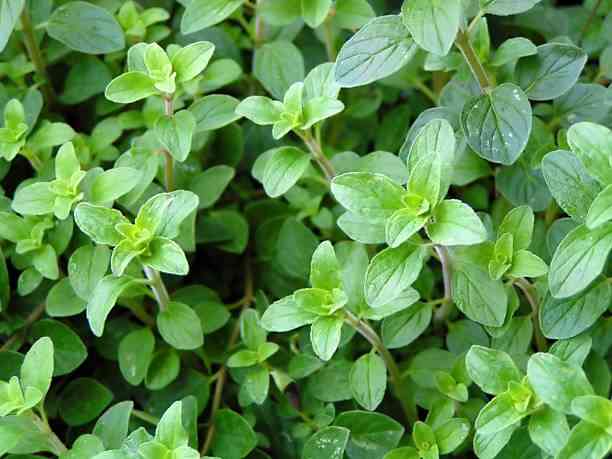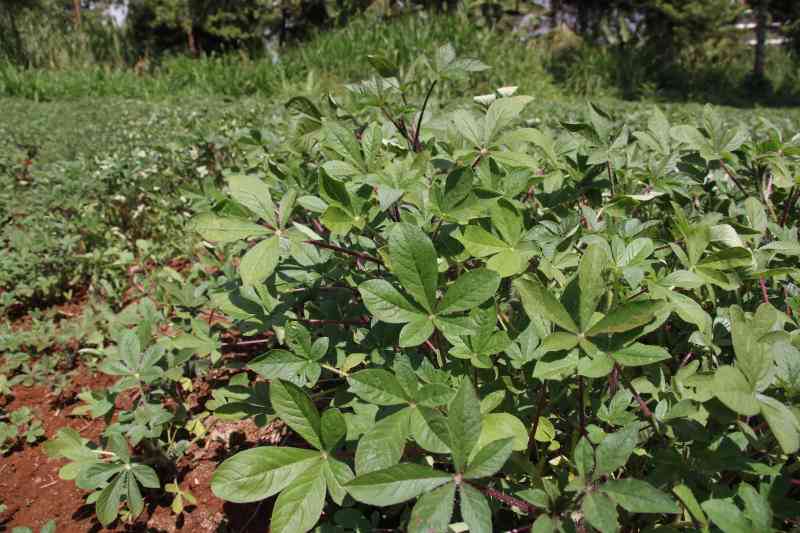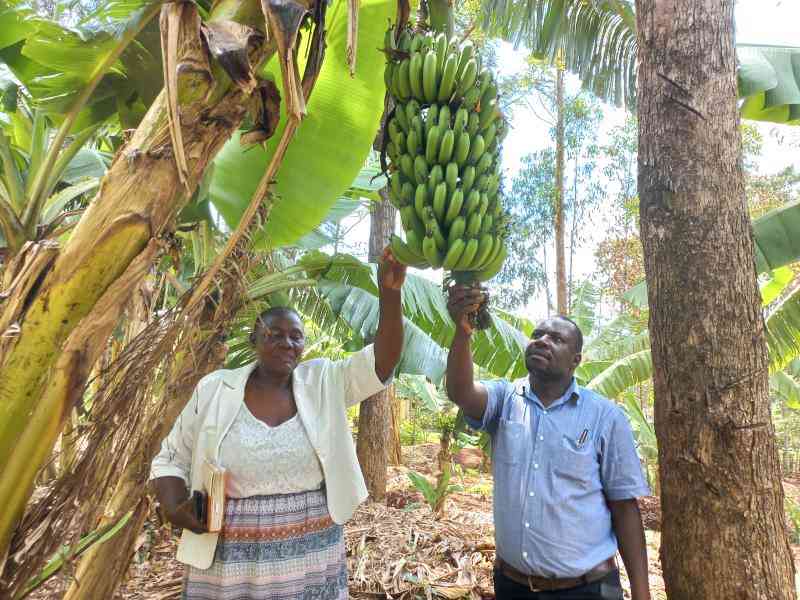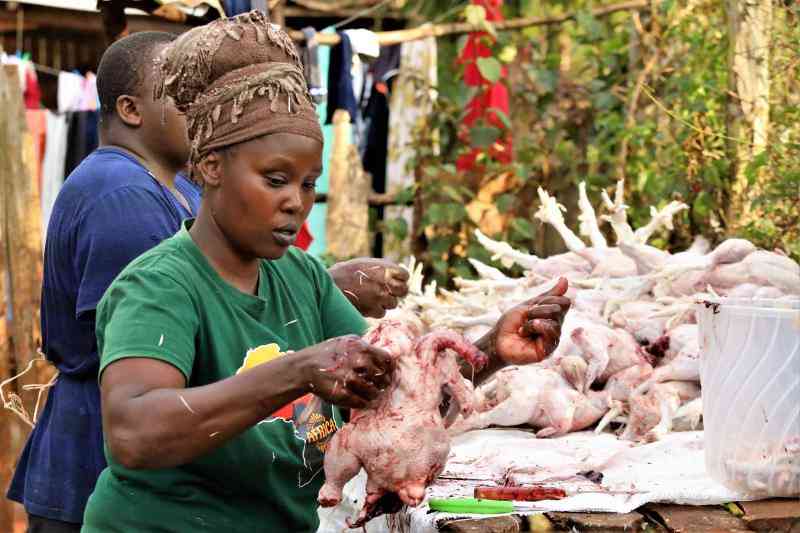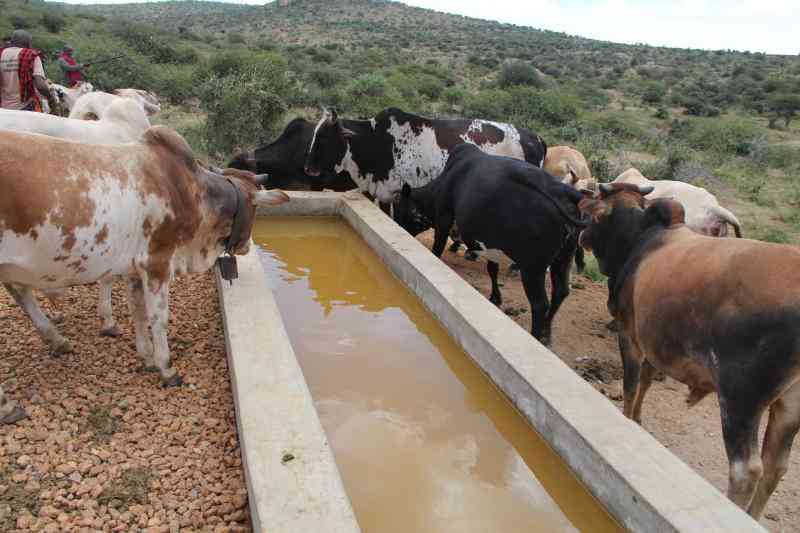Did you know that agriculture uses on average 70 per cent of freshwater in Kenya? Did you know that more than 1,000 litres of water are required to produce one kilo of maize? Everybody knows you cannot produce food without water, but only few are aware how food production affects water availability and, even more importantly, its quality.
Due to climate change, there is an increasing need for Kenya to pay attention to the strong and interwoven relationship between water and food; policies and activities have to reflect this nexus. The Netherlands is world leader in dealing with the challenging relation between agriculture and water management.
Over the centuries, the Dutch have mastered the combined art of flood protection, water supply and treatment, as well as food production. Living in a challenging and vulnerable environment spurs innovation and cooperation. In our case, living below sea level, water management and agriculture have become a skill out of necessity; it is in our genes. By constantly adapting our approach to water challenges since the 17th century, we gained knowledge and skills that we can share internationally. By putting our heads together, we can tackle Kenya’s water and food-related challenges.
Silo approach
In the last 30 years, the Netherlands in Kenya supported activities in water supply, food security and nutrition. We developed and implemented programmes in dairy and horticulture value chains as well as drinking water and sanitation. The nexus perspective, however, was mostly lacking. Climate change, however, is a game changer, which made us keenly aware of the need to pay more attention to the crucial interrelation between food and water. Ignoring the nexus will eventually lead to water points and irrigation schemes running dry and agricultural farmland losing productivity. More than ever, there is a need to move away from a silo approach in agriculture towards a more integrated approach.
We see opportunities to boost agricultural output through integration of food and water policies. Tackling food, nutrition and water security through the nexus approach also positively benefits women and girls, who traditionally provide, prepare and process food and water. Government, NGOs, research institutes and private sector need to work together to change the negative cycle of water shortage and crop failures. One should think of business cases promoting drought tolerant seeds and crops, sustainable rangeland and grazing models, water and soil-efficient practices, as well as inclusion of farmers in the development and implementation of water catchment plans.
The Netherlands is financing development programmes like Smart Water for Agriculture and Climate Resilient Agribusiness for Tomorrow where this integrated approach is applied. The delegation of powers and resources to counties in Kenya provide an excellent opportunity to better adapt policies to local needs and to coordinate stakeholder involvement.
Counties, rather than the national government, are more flexible in adapting their structures and approaches to the reality on the ground. We therefore call on counties to support platforms where stakeholders such as farmers, water companies, pastoralists, private sector, policy makers and agricultural export companies, NGOs and tree nurseries can come together. They jointly make decisions and take action on water and food issues that benefit all. In the Netherlands, the platforms united stakeholders against the common enemies posed by the sea and rivers, in Kenya it can unite against the common enemies of drought and erratic rainfall.
Cooperation and public-private partnerships have always been essential for the Dutch. In Kenya, we brought together 100 water and food security partners on World Food Day in 2019. These partners took the first steps in making the Kenyan water and food sectors climate proof. Solutions can range from something simple as planting trees or recycling dish water, to more challenging projects such as developing water catchment plans.
While the rains are with us now, we witness the enormous amounts of freshwater that flow away. Kenya needs to become a sponge country with flood-buffer areas and climate-smart agricultural practices. The Netherlands, together with its Kenyan partners, stands ready to work towards this goal.
[The writer is the Ambassador of the Kingdom of the Netherlands to Kenya]
Want to get latest farming tips and videos?
Join Us
 The Standard Group Plc is a multi-media organization
with investments in media platforms spanning newspaper print operations,
television, radio broadcasting, digital and online services. The Standard Group
is recognized as a leading multi-media house in Kenya with a key influence in
matters of national and international interest.
The Standard Group Plc is a multi-media organization
with investments in media platforms spanning newspaper print operations,
television, radio broadcasting, digital and online services. The Standard Group
is recognized as a leading multi-media house in Kenya with a key influence in
matters of national and international interest.
 The Standard Group Plc is a multi-media organization
with investments in media platforms spanning newspaper print operations,
television, radio broadcasting, digital and online services. The Standard Group
is recognized as a leading multi-media house in Kenya with a key influence in
matters of national and international interest.
The Standard Group Plc is a multi-media organization
with investments in media platforms spanning newspaper print operations,
television, radio broadcasting, digital and online services. The Standard Group
is recognized as a leading multi-media house in Kenya with a key influence in
matters of national and international interest.

